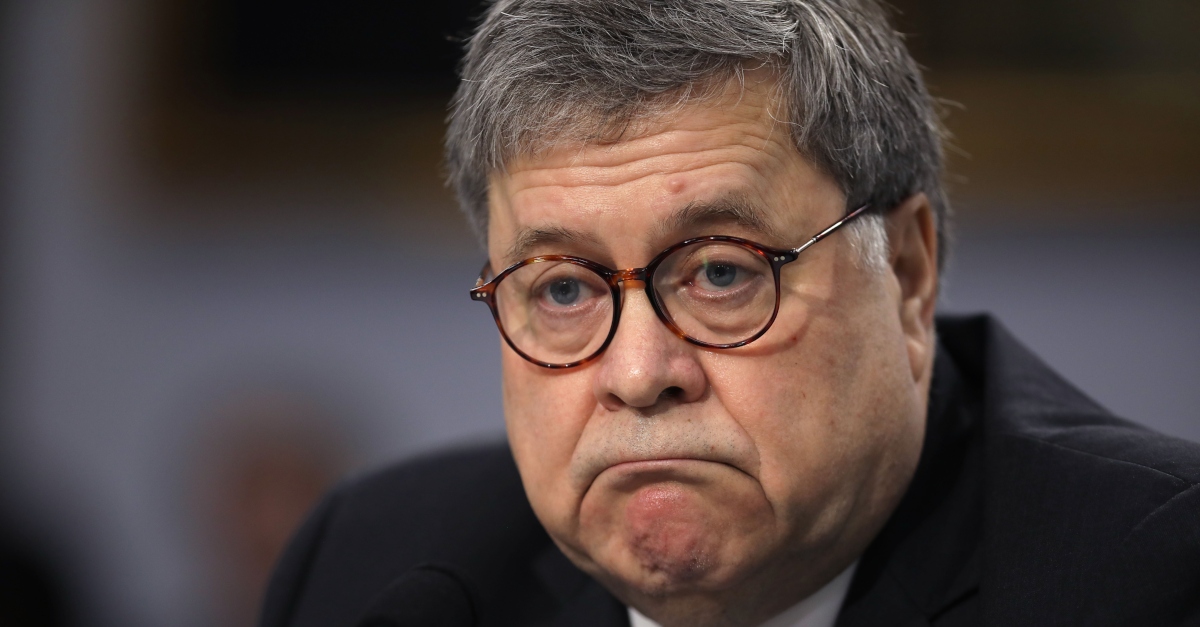
The Department of Justice (DOJ) on Wednesday submitted a motion in federal court arguing that the Trump administration has been cooperative with House Democrats on the matter of impeachment thus far. That same filing, however, rescinds a prior cooperation agreement between House Democrats and the White House.
The House Judiciary Committee has somewhat doggedly attempted to obtain testimony from former White House Counsel Don McGahn as part of investigations related to the House’s ongoing impeachment inquiry. Efforts to this end have so far exceeded six months.
Not unsurprisingly, McGahn and the White House have failed to come to mutually-agreeable terms with congressional investigators.
A subpoena was issued in April, but that subpoena was ignored.
In August, House Democrats filed a massive lawsuit against McGahn with the U.S. District Court for the District of Columbia seeking a seeking a declaratory judgment that McGahn had violated the law by ignoring the duly-issued congressional subpoena to testify and requesting an injunction compelling McGahn’s testimony.
That 1,059-page filing notes:
In an attempt to avoid the need to bring this lawsuit, the Judiciary Committee has repeatedly tried to reach an accommodation to secure McGahn’s testimony. This effort has not succeeded and has resulted in a stalemate.
“McGahn has violated and continues to violate his legal obligations by refusing to appear before the Judiciary Committee as required by the subpoena,” the filing alleges later on, “and, moreover, by refusing to answer questions where there has been no assertion of executive or other privilege or where executive privilege has been waived.”
Legal wrangling ensued–which continues to this day. On October 1, Democrats filed a motion for summary judgment in a bid to expedite the months-long standoff between the White House and Congress.
McGahn, the White House and the DOJ under Attorney General William Barr insist they’ve been more than accommodating.
In Wednesday’s two-page filing, DOJ attorneys argued they’ve been sincerely working with House Democrats on McGahn’s behalf in an effort to find common ground for the requested testimony.
In fact, the DOJ’s filing actually starts off by blaming congressional investigators for pressing the matter via the court system:
The [Judiciary] Committee does not dispute that it filed this action and moved for summary judgment well before the accommodation process had run its course. Indeed, within two days of [McGahn] filing his cross-motion and opposition to the Committee’s motion for summary judgment the Committee reached out to the White House Counsel’s Office to resume discussions about the terms and conditions on which an interview with Mr. McGahn might occur. In the following weeks, the parties held more than five discussions to explore whether they could reach a mutually acceptable accommodation for an interview with Mr. McGahn. Thus, it simply is not the case that the parties “have been. . . ‘at an impasse’” throughout the pendency of this case, nor is it the case that the parties’ inability to reach an agreement constitutes “stonewalling” by the White House.
The filing did not stop there.
“Notwithstanding these points, [McGahn] agrees that the parties’ negotiations have now reached a stage at which it is clear that fundamental disagreements remain between the parties and that, under the present circumstances, it appears unlikely the parties will reach a mutually acceptable accommodation,” the filing continues. “[McGahn] therefore withdraws his accommodation argument.”
In other words: after ignoring a subpoena for over six months, the White House took issue with that defiance being categorized as “stonewalling.” Their official response to that categorization? An official pronouncement filed in federal court that, from this point forward, they would be stonewalling.
In other other words, the White House appears to be telling House Democrats: “Now, just look at what you made me do.”
Georgetown Law Professor Marty Lederman noted the upshot in a series of tweets just after the DOJ filed their motion:
You don’t see this every day (perhaps not ever): In the wake of the [Pat] Cipollone (“the whole congressional process is unconstitutional & thus we can’t cooperate”) letter, DOJ concedes in the McGahn case, to be argued today, that the accommodation process is kaput and thus waives that (often successful) argument. I doubt much is at stake in the McGahn case itself: He’ll assert privilege as to most [questions] and in any event won’t say more than what’s in the Mueller Report. The waiver is more important for future Ukraine-related cases involving witnesses unwilling to testify.
Arguments over the McGahn subpoena began at 2 p.m. on Thursday.
During oral arguments, the government argued that Democrats don’t need McGahn’s testimony because they have the entire report on election interference and obstruction of justice by former special counsel Robert Mueller. Democrats countered that their efforts to obtain additional Mueller Report-related evidence are related to the House’s recently formalized impeachment inquiry.
BuzzFeed News’ Zoe Tillman noted from inside the courtroom:
Dems are arguing that the McGahn subpoena is part of the broader impeachment inquiry — they want to ask about the Mueller report, not the more recent Ukraine business, but recall that Pelos said the impeachment inquiry incl. preexisting committee investigations into the president
— Zoe Tillman (@ZoeTillman) October 31, 2019
[image via via Chip Somodevilla_Getty Images]
Editor’s note: this story has been amended post-publication to include an update from oral arguments and for clarity.